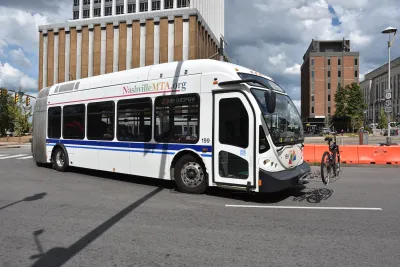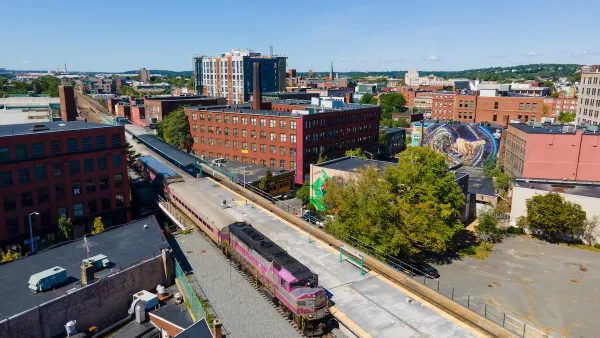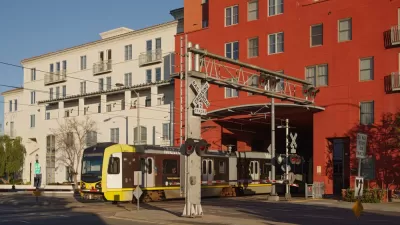Without reform, restrictive zoning codes will limit the impact of the city’s planned transit expansion and could exclude some of the residents who depend on transit the most.

A report from the Urban Institute finds a mismatch between Nashville’s current zoning codes and the city’s “ambitious $3.1 billion transit investment plan,” dubbed “Choose How You Move.”
Rthvika Suvarna describes the report’s findings in Bloomberg CityLab, noting that the report shows only about 26 percent of Nashville’s housing units are within a half mile of the planned transit corridors. “These transit-adjacent areas are already experiencing pronounced gentrification, raising red flags about equitable access to improved bus service.” Meanwhile, zoning codes prohibit multifamily housing in many of these areas (and 90 percent of the city’s residentially zoned land). “The research also highlights a mismatch: Available multifamily development capacity is overwhelmingly concentrated in neighborhoods with the lowest property values, precisely where market-driven investment is least likely to materialize.”
According to Suvarna, “The city’s planning department projects a need for some 80,000 new housing units by 2040, but under current policies, only about 50,000 are likely to be built.” The report recommends more comprehensive zoning reforms to allow multifamily housing in more areas and “ensure that those who would benefit most from public transportation don’t find themselves increasingly isolated in transit-poor areas.”
FULL STORY: Nashville’s $3 Billion Transit Plan Brings a Call for Zoning Reform

Maui's Vacation Rental Debate Turns Ugly
Verbal attacks, misinformation campaigns and fistfights plague a high-stakes debate to convert thousands of vacation rentals into long-term housing.

Planetizen Federal Action Tracker
A weekly monitor of how Trump’s orders and actions are impacting planners and planning in America.

San Francisco Suspends Traffic Calming Amidst Record Deaths
Citing “a challenging fiscal landscape,” the city will cease the program on the heels of 42 traffic deaths, including 24 pedestrians.

Defunct Pittsburgh Power Plant to Become Residential Tower
A decommissioned steam heat plant will be redeveloped into almost 100 affordable housing units.

Trump Prompts Restructuring of Transportation Research Board in “Unprecedented Overreach”
The TRB has eliminated more than half of its committees including those focused on climate, equity, and cities.

Amtrak Rolls Out New Orleans to Alabama “Mardi Gras” Train
The new service will operate morning and evening departures between Mobile and New Orleans.
Urban Design for Planners 1: Software Tools
This six-course series explores essential urban design concepts using open source software and equips planners with the tools they need to participate fully in the urban design process.
Planning for Universal Design
Learn the tools for implementing Universal Design in planning regulations.
Heyer Gruel & Associates PA
JM Goldson LLC
Custer County Colorado
City of Camden Redevelopment Agency
City of Astoria
Transportation Research & Education Center (TREC) at Portland State University
Jefferson Parish Government
Camden Redevelopment Agency
City of Claremont





























